WHAT THE SISTERS HAVE BEEN UP TO
KIDDER TALKS ABOUT THE FILM COMMUNITY DAYS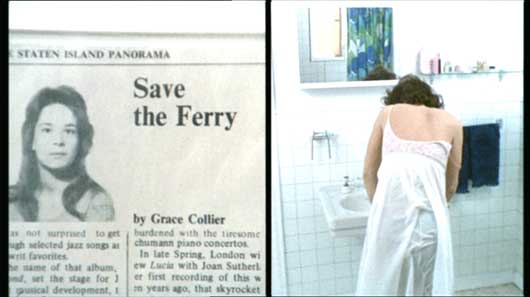 Jennifer Salt
Jennifer Salt and
Margot Kidder, who each starred in
Brian De Palma's
Sisters (1973), have been making marks in various TV projects of late. Kidder has recently made guest appearances on series such as
Brothers & Sisters,
Smallville, and
The L Word. Kidder's most recent role was as one half of a lesbian couple in the
here! TV murder mystery
On the Other Hand, Death: A Donald Strachey Mystery, which is now available on DVD. In February, Kidder was interviewed about the film by
The Advocate's Harrison Pierce, who asked her about hanging out with De Palma and friends at Kidder and Salt's Malibu beach house in the early 1970s...
[Advocate] Early in your career you shared a beach house with actress Jennifer Salt at Nicholas Canyon Beach in Malibu that served as a hangout for not-yet-famous filmmakers like Martin Scorcese, Brian De Palma, and Steven Spielberg. That period has become the stuff of Hollywood legend, hasn’t it? [Kidder] I guess it has. For us it was just a bunch of broke kids passing the hat for dinner. We didn’t think we were unusual, although we had a great degree of cockiness. We were sure we could change the entertainment business and the world and everything else all at once. It was a wonderful time, and we had a great sense of community. After it all sort of fell apart and everybody got successful and went off to do their own thing, I never got that sense of community again until I moved back to Livingston. I think it’s an essential in the human experience.
[Advocate] Any anecdote you can share from that particular period that gay readers might get a kick out of?
[Kidder] Oh, well, once I dropped mescaline and lost my boyfriend to another man. Oh, no, it wasn’t mescaline, it was the love drug. What the hell was the love drug?
[Advocate] Ecstasy?
[Kidder] MDA. It wasn’t ecstasy because it didn’t have speed in it. In those days, the pre-cocaine days, we took drugs only once in a while. The guy who wrote the book [Peter Biskind, author of Easy Riders, Raging Bulls] makes it seem like we were all loaded all the time, which wasn’t true at all. I mean, pot, maybe. We were very innocent. We were deeply innocent people. So we took the love drug to find love or something, and I remember looking over and there was my boyfriend necking away with another man, so the love drug worked for him [laughs].
DE PALMA'S DANIELLE WAS TO HAVE SWEDISH ACCENT
In a separate interview last March, Kidder talked to A.V. Club's Nathan Rabin about getting the Sisters script from De Palma...
[Kidder] I was with Brian De Palma at the time, and he said he wrote the role specifically for me. I don’t know what that says about the way he saw me, since the role was of a castrating killer. Brian came one morning to the house that I shared with Jennifer Salt, who is still a good friend and is currently a writer-producer on Nip/Tuck. He said “Here’s your Christmas present.” He wrote the character to have a Swedish accent, but since I couldn’t pull that off, he switched it to French-Canadian. It was such a romantic time in my life. Everyone was young and passionate and convinced they were going to change film forever. Brian and Marty Scorsese and Robert De Niro would come over and hang out, and we’d all work together. [AVC] That’s a cinematic period that’s been romanticized and documented in books like Peter Biskind’s Easy Riders, Raging Bulls.
[Kidder] Yeah, but [Biskind] missed the whole essence of that. He made it seem sordid. I was saying to Paul Schrader that he missed the idealism and the passion of that era in Hollywood, but also in American life, that ’60s sense of optimism and hope. He made it all about drugs, when to most of us, that just meant pot and magic mushrooms. He made it seem like we were all shooting heroin into our eyeballs. But that’s part of the whole ’60s and what it represented: feminism and civil rights and trying to stop the war. Hopefully we’re starting to see some of that optimism again, through the excitement around Obama.
In the interviews, Kidder raves about Richard Donner's original version of Superman II which was released on DVD a couple of years ago. Donner was fired off that picture, which was then finished by Richard Lester.
SALT DEVELOPING TV PILOT FOR A&E
Aside from writing and producing F/X's Nip/Tuck, Salt is also working on the screenplay for the film adaptation of Elizabeth Gilbert's bestselling memoir Eat, Pray, Love, which is being directed by Nip/Tuck creator Ryan Murphy, and will star Julia Roberts and Richard Jenkins. Meanwhile, Variety reports that Salt is pitching a concept for a new series called The Quickening, "about a bipolar LAPD detective who performs better when off her medication."
 John Lithgow has signed on to play a serial killer on the fourth season of Showtime's Dexter. According to Entertainment Weekly's Michael Ausiello, Lithgow has been cast as "Walter Simmons, an unassuming suburbanite who has been living a dual life as one of America’s most prolific and deadliest serial killers." Ausiello continues, "When the mad man (who is dubbed the 'Trinity Killer' because he always kills in threes) relocates to Miami, Dexter becomes obsessed (or inspired?) by his efficient killing methods and ability to evade capture for almost three decades." Ausiello's fellow EW blogger (and author of Scarface Nation) Ken Tucker is naturally reminded of Lithgow's creepy opportunist serial killer in Brian De Palma's Blow Out.
John Lithgow has signed on to play a serial killer on the fourth season of Showtime's Dexter. According to Entertainment Weekly's Michael Ausiello, Lithgow has been cast as "Walter Simmons, an unassuming suburbanite who has been living a dual life as one of America’s most prolific and deadliest serial killers." Ausiello continues, "When the mad man (who is dubbed the 'Trinity Killer' because he always kills in threes) relocates to Miami, Dexter becomes obsessed (or inspired?) by his efficient killing methods and ability to evade capture for almost three decades." Ausiello's fellow EW blogger (and author of Scarface Nation) Ken Tucker is naturally reminded of Lithgow's creepy opportunist serial killer in Brian De Palma's Blow Out.





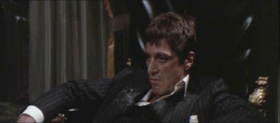 Brian De Palma's Scarface will be rereleased in digital theaters August 25th, as Universal rolls out five Cinema Classics between now and November. The other four films being reissued are: Spartacus (June 9), The Blues Brothers (July 28), The Thing (John Carpenter's version) (September 15), and National Lampoon's Animal House (November 2).
Brian De Palma's Scarface will be rereleased in digital theaters August 25th, as Universal rolls out five Cinema Classics between now and November. The other four films being reissued are: Spartacus (June 9), The Blues Brothers (July 28), The Thing (John Carpenter's version) (September 15), and National Lampoon's Animal House (November 2). 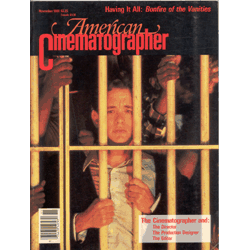 The June 2009 issue of
The June 2009 issue of 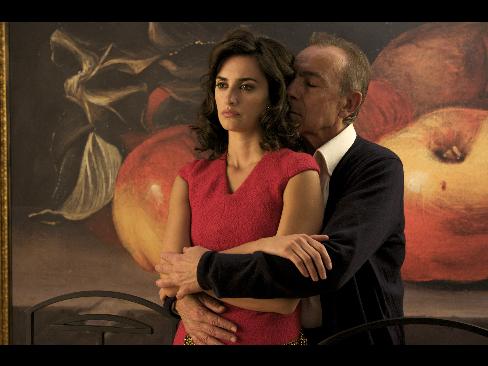

 While I definitely don't agree with his statement that Brian De Palma's Mission To Mars is "not worth seeing,"
While I definitely don't agree with his statement that Brian De Palma's Mission To Mars is "not worth seeing," 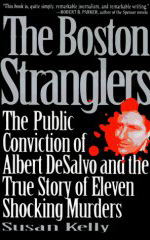 Producer Gale Anne Hurd is making the rounds thanks to the new Terminator movie, and
Producer Gale Anne Hurd is making the rounds thanks to the new Terminator movie, and 
